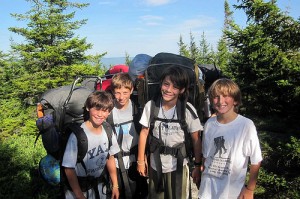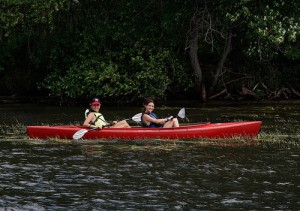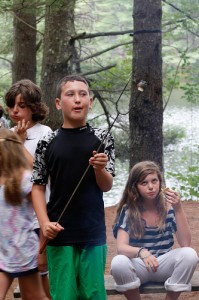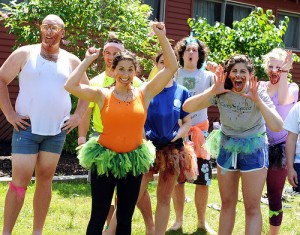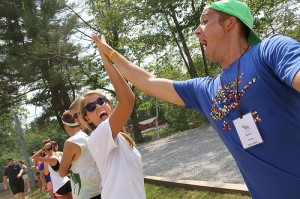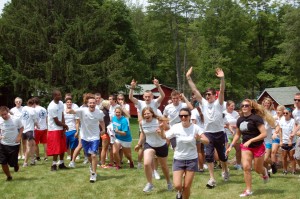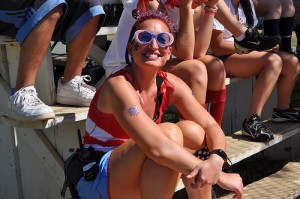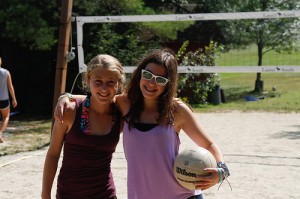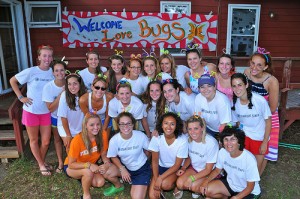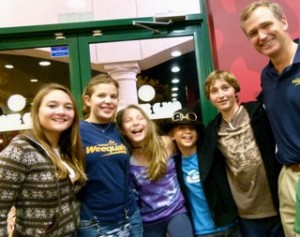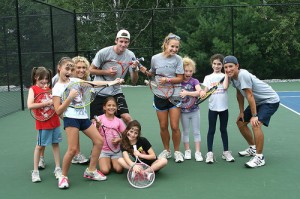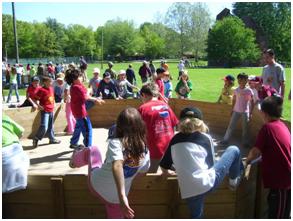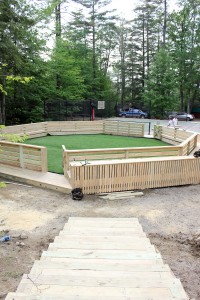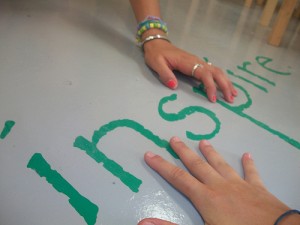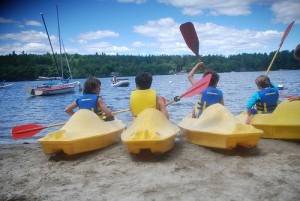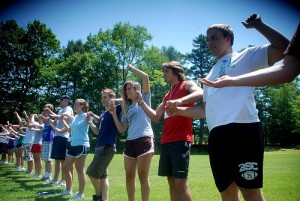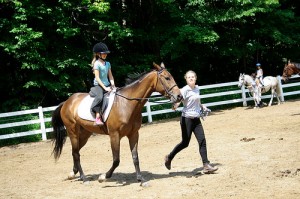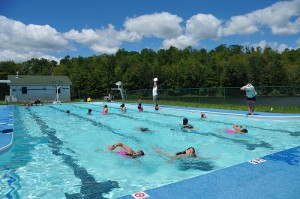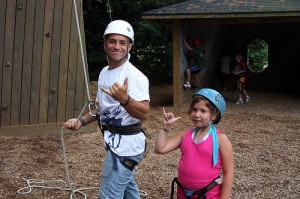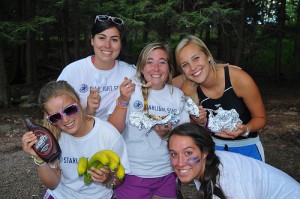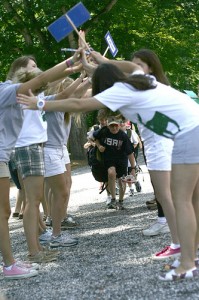As part of iconic America, many American summer camps are steeped in rich histories. America’s Finest Summer Camps are no exception. We thought we would take a minute to share a brief history of each camp with you.
Camp Laurel
 Camp Laurel was founded in 1949 and has been in continuous operation ever since. Its original site was on Lake Awosting, New York. During this period, the camp was under the co‑direction of Mel and Bette Archard and John and Alice Harrison. In the fall of 1965 the camp moved to its present site on Echo Lake in Mt. Vernon, Maine. Camp Laurel opened at its new site on July 1, 1966. In 1974 Ron Scott began working for Camp Laurel on a full‑time basis, and in 1978 Ron and Ann joined Mel and Bette as Directors. In 1979 Ron and Ann purchased Camp Laurel and assumed the roles of Owners and Directors. In 1994, after spending three summers as Co-Director, Keith Klein purchased Camp Laurel and has served as Owner and Director since that time. Jem Sollinger, a long-time camper and counselor, joined Keith as Co-Director in 2002. In 2007, Jem and his wife, Debbie, assumed the directorship of Laurel. Keith maintains an active role as Director and spends his summers on Echo Lake, Maine along with Jem and Debbie.
Camp Laurel was founded in 1949 and has been in continuous operation ever since. Its original site was on Lake Awosting, New York. During this period, the camp was under the co‑direction of Mel and Bette Archard and John and Alice Harrison. In the fall of 1965 the camp moved to its present site on Echo Lake in Mt. Vernon, Maine. Camp Laurel opened at its new site on July 1, 1966. In 1974 Ron Scott began working for Camp Laurel on a full‑time basis, and in 1978 Ron and Ann joined Mel and Bette as Directors. In 1979 Ron and Ann purchased Camp Laurel and assumed the roles of Owners and Directors. In 1994, after spending three summers as Co-Director, Keith Klein purchased Camp Laurel and has served as Owner and Director since that time. Jem Sollinger, a long-time camper and counselor, joined Keith as Co-Director in 2002. In 2007, Jem and his wife, Debbie, assumed the directorship of Laurel. Keith maintains an active role as Director and spends his summers on Echo Lake, Maine along with Jem and Debbie.
Camp Starlight
Founded in 1947 by the Schmierer family, 2011 marks Camp Starlight’s 65th year of making tradition, spirit, friendship, adventure,  family, and fun. These are the words used by campers, parents, and staff to define their experiences and memories of Camp Starlight. Located in Starlight, Pennsylvania, just two and a half hours northwest of New York City, a drive up the mile long road brings you to the 285 acre brother/sister campus with its own private lakes and surrounded by the “endless mountains” of Pennsylvania.
family, and fun. These are the words used by campers, parents, and staff to define their experiences and memories of Camp Starlight. Located in Starlight, Pennsylvania, just two and a half hours northwest of New York City, a drive up the mile long road brings you to the 285 acre brother/sister campus with its own private lakes and surrounded by the “endless mountains” of Pennsylvania.
A glimpse at the endless rows of bunk plaques inside the Dining Room will provide any visitor with an instant glimpse of what a special place Camp Starlight has been to campers and staff alike in its 65 years of existence. David and Allison Miller purchased Camp Starlight in 1999 and are now in their 13th year of serving as its Owners/Directors.
Camp Laurel South
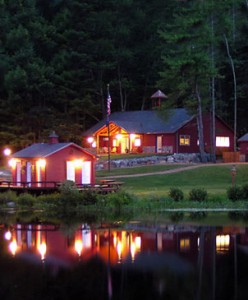 Laurel camping was founded in 1949 and Camp Laurel operated its first summer in 1950 under the direction of the Archard and Harrison families. In 1974, Ron and Ann Scott joined Ann’s parents, Mel and Bette Archard, as Directors. In 1979 Ron and Ann purchased Laurel and assumed the roles of Owners and Directors. In 1994, Keith Klein purchased Camp Laurel from the Scotts. Keith owns Laurel today along with his partners, Jem and Debbie Sollinger. The Scotts purchased the former Dr. Johnson’s Camps in 1992 at its site on Crescent Lake in Casco, Maine, and renamed it Laurel South. Laurel South operated its first summer in 1993 under the leadership of Roger and Dagni Christian. In the fall 0f 1998, Roger and Dagni, along with Keith, took ownership of Laurel South and continue their partnership to this day.
Laurel camping was founded in 1949 and Camp Laurel operated its first summer in 1950 under the direction of the Archard and Harrison families. In 1974, Ron and Ann Scott joined Ann’s parents, Mel and Bette Archard, as Directors. In 1979 Ron and Ann purchased Laurel and assumed the roles of Owners and Directors. In 1994, Keith Klein purchased Camp Laurel from the Scotts. Keith owns Laurel today along with his partners, Jem and Debbie Sollinger. The Scotts purchased the former Dr. Johnson’s Camps in 1992 at its site on Crescent Lake in Casco, Maine, and renamed it Laurel South. Laurel South operated its first summer in 1993 under the leadership of Roger and Dagni Christian. In the fall 0f 1998, Roger and Dagni, along with Keith, took ownership of Laurel South and continue their partnership to this day.
While Laurel South is known as a first-rate facility, Roger, Dagni and Keith have always maintained that it is the people who make Laurel South the special place it is today. Every camper and counselor has left an impression on our camp and contributed to the rich tradition we enjoy. As we speak with Laurel South alumni, we often hear stories of Spirit Days, Council Fires, Carnival, S- Day’s, Ohana, Socials…the list goes on and on. The overriding theme that ties each of these stories together is memories. Memories of friendships and fun which last long after the summers spent at camp.
Camp Weequahic
Weequahic was founded in 1953 by Art and Mollie Lustig and operated under the directorship of the same family for more than five 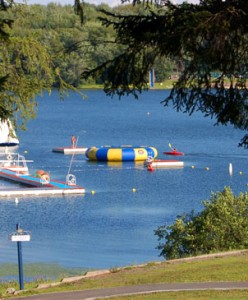 decades. The ideal with which camp was started – to provide the best in camping –still holds true today, almost 60 years after our first campers spent their summer with us in Lakewood, Pennsylvania.
decades. The ideal with which camp was started – to provide the best in camping –still holds true today, almost 60 years after our first campers spent their summer with us in Lakewood, Pennsylvania.
Weequahic is far more than the facilities and scenic beauty of over 100 acres located in Wayne County, although these are certainly part of what has made Weequahic so special. It’s the people and their relationships that make Weequahic what it is. Our campers learn new activities every year, but what draws them back is our warm, caring environment… an environment in which friendships are encouraged and where self-sufficiency and tolerance in learning to live with others is taught.
The current Directors, Cole and Kate Kelly, work tirelessly to insure that the Weequahic motto, which has been maintained for almost 60 years, continues to be:
« Where Caring is a Tradition. »
So there you have it. If you’ve been doing your math, then by now you’ve figured out that, combined, we have 200 years of experience in the camping! For America’s Finest Summer Camps, history is our past, present, and future.
 作为父母,我们常常听到人们预测说我们的孩子们需要为一个新的“全球”世界作准备。但是有些人却认为全球互动的根基在多个世纪前就已经准备好了,我们当前所拥有的电子和交通技术让世界各地的人们更加互相联系和依赖。因此,如何才能让我们的孩子们准备就绪并给予他们能够变得全球化的经验?
作为父母,我们常常听到人们预测说我们的孩子们需要为一个新的“全球”世界作准备。但是有些人却认为全球互动的根基在多个世纪前就已经准备好了,我们当前所拥有的电子和交通技术让世界各地的人们更加互相联系和依赖。因此,如何才能让我们的孩子们准备就绪并给予他们能够变得全球化的经验? 就要求能够 “拥有一个去交朋友和与人成为好朋友的心态”。交朋友指的是练习全球性的品质(如,移情和尊重)。在露营中与别人建立长久的友谊是整个体验过程中的重要部分。 我们的辅导员和员工们都经过培训,随时准备帮助露营者们在露营中得到成长,在必要时能开发新技能并关心他人。Tavangar认为,“黄金法则” 或者“你希望别人怎样对待你,那么你也怎样对待别人”的观点渗透了各种文化和信仰传统,这些在她的书中也有详细说明。当孩子们有着互相关心的普世价值观时,他们就会变得谦虚,有礼貌且具有同情心,从而能够交到真正的朋友 – 这也让他成为一名世界公民。
就要求能够 “拥有一个去交朋友和与人成为好朋友的心态”。交朋友指的是练习全球性的品质(如,移情和尊重)。在露营中与别人建立长久的友谊是整个体验过程中的重要部分。 我们的辅导员和员工们都经过培训,随时准备帮助露营者们在露营中得到成长,在必要时能开发新技能并关心他人。Tavangar认为,“黄金法则” 或者“你希望别人怎样对待你,那么你也怎样对待别人”的观点渗透了各种文化和信仰传统,这些在她的书中也有详细说明。当孩子们有着互相关心的普世价值观时,他们就会变得谦虚,有礼貌且具有同情心,从而能够交到真正的朋友 – 这也让他成为一名世界公民。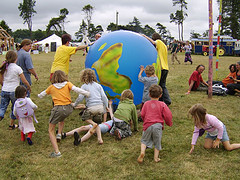 Growing up global并非只是为了如何准备好在经济世界做生意。它还与如何能够拥有意愿去与训练了 一个本地足球队的肯尼亚父亲,一个有着与众不同的时尚风格的土耳其邻居,或者一个期望永不间断电源的美国人轻松相联系息息相关。最后,它所涉及的是对不同事物具有好奇心而不是恐惧感,并重视与我们遇见的不同人们交朋友。 心理学家认为友谊与一个人的健康息息相关,并最终关系到我们的生存能力。因此,友谊是让人在个自的领域以及在我们的地球上感觉舒适自在的关键。
Growing up global并非只是为了如何准备好在经济世界做生意。它还与如何能够拥有意愿去与训练了 一个本地足球队的肯尼亚父亲,一个有着与众不同的时尚风格的土耳其邻居,或者一个期望永不间断电源的美国人轻松相联系息息相关。最后,它所涉及的是对不同事物具有好奇心而不是恐惧感,并重视与我们遇见的不同人们交朋友。 心理学家认为友谊与一个人的健康息息相关,并最终关系到我们的生存能力。因此,友谊是让人在个自的领域以及在我们的地球上感觉舒适自在的关键。
 570-798-9831
570-798-9831
